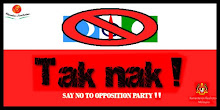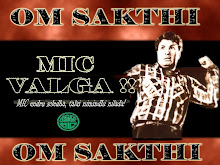The Malaysian Indian Congress (MIC) is one of the oldest political parties of Malaysia, established in August 1946. It was established in the course of the continuing struggle of the inter-war tears, to end British Colonial rule, as well as in the need for representation on behalf of Indian Community in the post war development of the country. Its founder President was John A. Thivy (1946-1947).
At its nascent stage, the Party was committed to the attainment of:
• Freedom and democracy for the country.
• Positive inter-racial harmony and cooperation.
• General prosperity and stability of the country.
• A fair share for the Indian community in the future of the country
The sentiment of the Party in its early days was anti-British and the demand for the end of the Colonial rule. In the progress towards independence as well as in later period the overriding philosophy of the Party was the need for a non-communal approach in the development of the country. It was the intense anti-British sentiment that made the MIC under the leadership of its second President Mr. Budh Singh (1947-1950) critical of the Malayan Union proposals did not rally Indian support although the proposals were favourable and upheld the principle of jus soli. Later the MIC joined the All Malaya Council for Joint Action (AMCJA) under Tun Tan Cheng Lok in opposition to the less liberal Federation of Malaya Agreement 1948.
The second phase of the Party began, under its third President Mr. K.Ramanathan,realising the unneffectiveness and futility of non-cooperation with the Government when the other major communities represented by UMNO and MCA corporated, the MIC contested in 1952 Kuala Lumpur Municipal Elections in alliance with the IMP under Dato' Onn bin Jaafar and other non-communal organizations. However the 1952 elections proved the MIC's attempt to preach and practise non-communalism would not prevail in Malayan politics when communalism was the winning factor.
In 1954 the MIC under its fourth President Mr. K. L. Devaser (1951-1955) became the third partner in the Alliance with UMNO and MCA. This alliance was not new in MIC. Since MIC had always believed that within the context of Malaya, political alignments were fundamental between the various organisations in the country. It has always been moderate and pragmatic and it was thus tha MIC had joined tha AMCJA, later the IMP and subsequently the Alliance - the last after being convinced that it was the most workable and effective form of political technique in the Malayan context.
The third phase of the MIC history was its consolidation. Under Tun V.T Sambanthan, who took over the party's leadership as the fifth President (1955-1973) the party grew in membership as well as in the number of branches, becoming a mass based party, and the same time firmly entrenching the MIC as a partner of Alliance. The finest hour was achieved on 31st August 1957 when Independence was achieved under the Merdeka Agreement in which Tun V.T. Sambanthan was a signatory. The greatest challenge that the Party faced during this time was the fragmentation of estates, the livelihood of almost all Malaysian Indian Workers. Thus Party sponsored cooperative effort for acquiring these estates and prevent fragmentation and displacement of the workers. This witnessed the birth of National Land Finance Cooperative Society (NLFCS).
The fourth phase of the party began with Tan Sri Dato V. Manikavasagam the sixth President of the Congress (1973-1979) . Under his leadership the Party was put on a strong footing with buildings, offices and staff in various parts of the country and the party system organised and its capacity to deal with issues enhanced. It was during this period that the MIC as a member of the Alliance became part of Barisan Nasional. The party sponsored the Nesa Multipurpose Cooperative and the MIC Unit Trust as part of its programme for economic ventures, and also set up the MIC Education Fund for members children and the Malaysian Indian Scholarship for higher education as well as acquiring an Institute for training Indians in technical and trade skills. As a party which represents Indian in Government, the MIC continues to play vital role as a pragmatic moderator forging the diverse forces into a common will for the unity and well being of the society and country. With the demise of Tan Sri Dato V. Manikavasagam on 12 October 1979. Dato Seri S. Samy Vellu has taken over the helm of the Party.
Saturday, March 1, 2008
Subscribe to:
Post Comments (Atom)




No comments:
Post a Comment